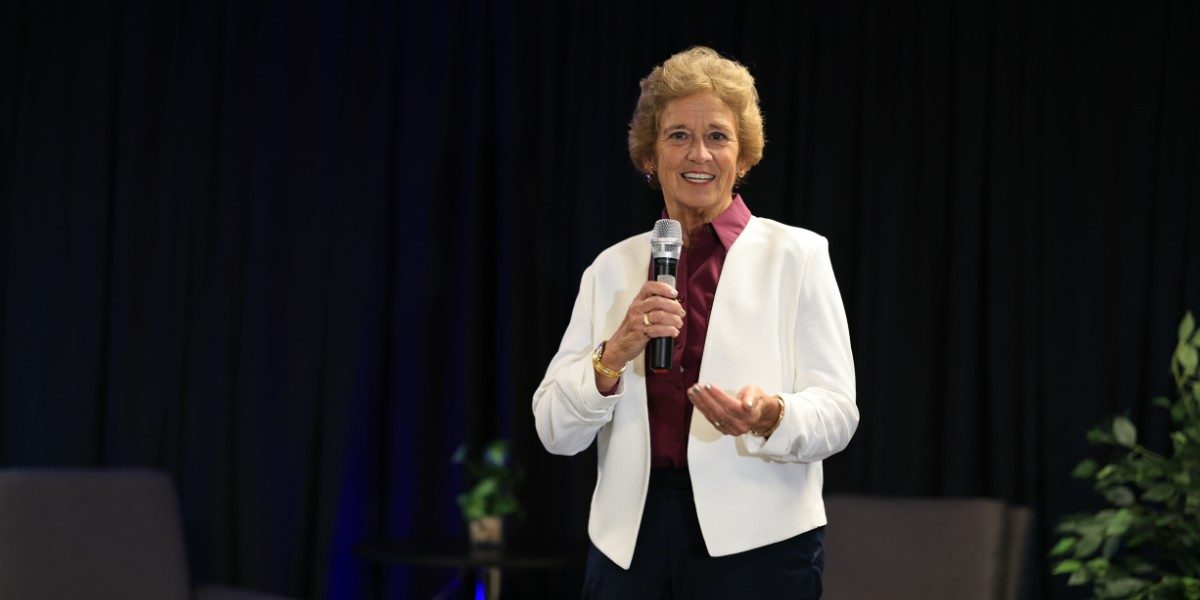By: Clara Bennett
In the wake of unimaginable loss, widows are often faced with not just emotional devastation, but also a cascade of financial responsibilities and decisions. Certified Financial Planner™ and Certified Grief Coach Debra L. Morrison understands these challenges well—and has dedicated herself to helping others navigate them.
With over four decades of experience in financial planning and asset management, Morrison has encountered many widows who felt overwhelmed by fear, unsure about their finances, and unclear about whom to trust. This experience inspired her to write My Husband Died, Now What?: A Widow’s Guide to Grief Recovery & Smart Financial Decisions—a compassionate guide that blends both emotional support and practical financial education. “Their concerns and questions were often similar,” Morrison explains. “Fear of not having ‘enough’ money, uncertainty about where to turn for advice, and feeling confused about finances. So, I decided to write a book that would provide widows not only with tools for grief recovery but also caution them about financial pitfalls to avoid.”
The Wake-Up Call
For Morrison, there wasn’t just a general trend—there was a specific, disheartening moment that drove her mission. A widow had been referred to her after her husband passed away, only to discover that she had been sold an unsuitable variable annuity. Even more troubling? The annuity had been sold by a so-called friend—a life insurance agent who had sat in the same church pew for years. “Despite the widow sharing her immediate needs—like replacing her car and repairing a retaining wall—he took advantage of her emotional state,” Morrison recalls. “He pushed her into signing over the entire death benefit into a high-commission annuity product.”
This and other similar incidents highlighted what Morrison describes as a “predatory landscape” for newly widowed women. These women, grieving and disoriented, often become targets for financial salespeople more interested in earning commissions than in truly serving the clients’ needs. “In many cases, these were inappropriate sales,” Morrison emphasizes. “They were not aligned with the needs of these widows, but they were certainly aligned with the agent’s personal financial interests.”
Beyond Grief: A Guide to Smart Financial Decisions
My Husband Died, Now What? is not just another financial advice book. Morrison combines actionable financial strategies with empathy and grief recovery techniques. She understands that trauma can cloud decision-making, and she gently guides readers toward reclaiming their financial confidence and peace of mind.
The book also addresses two economic issues that Morrison feels are often overlooked: the Widow Tax and the Pink Tax. These hidden financial burdens, she argues, can gradually erode a woman’s financial security if not addressed. “Widows already have enough to manage,” Morrison says. “They shouldn’t have to face additional financial struggles during such a vulnerable time.”
Education Over Exploitation
A key aspect of Morrison’s advocacy is education. She believes that with the right information and a solid support system, widows can move from feeling overwhelmed to empowered. Her book offers a clear path forward—from learning how to evaluate financial advisors to understanding the right questions to ask, as well as managing taxes, investments, and estate planning.
The language in the book is intentionally accessible. Morrison didn’t write this for financial professionals—she wrote it for everyday women suddenly thrust into an unfamiliar and difficult situation. Her goal? To provide widows with the tools to make informed, confident financial decisions without being rushed or pressured. “This book was a lifeline,” one reviewer writes on Amazon. “It gave me clarity, hope, and a plan when I felt completely lost.”
A Call to Action
Morrison’s message is clear: Widows deserve better. They deserve respect, transparency, and genuine support—not just sympathetic words or generic financial advice.
Her work as both an author and a financial coach is driven by that mission. While My Husband Died, Now What? is specifically for widows, its lessons about grief, resilience, and financial literacy are relevant for anyone experiencing life after loss.
In a world where women are still underrepresented in financial conversations and are disproportionately impacted by sudden income changes, Debra L. Morrison is a voice of wisdom, compassion, and dedicated advocacy.
For more information about My Husband Died, Now What?: A Widow’s Guide to Grief Recovery & Smart Financial Decisions, or to purchase the book, visit Amazon.
Disclaimer: The content of this article is for informational purposes only and reflects the experiences and perspectives of Debra L. Morrison as shared in her book My Husband Died, Now What?: A Widow’s Guide to Grief Recovery & Smart Financial Decisions. The views and opinions expressed are based on her personal journey and professional expertise, and do not constitute financial or legal advice. Readers should consult with a qualified financial advisor or other professional before making any financial decisions. This article does not guarantee specific outcomes and is intended to provide guidance and support for those facing grief and financial challenges.

















